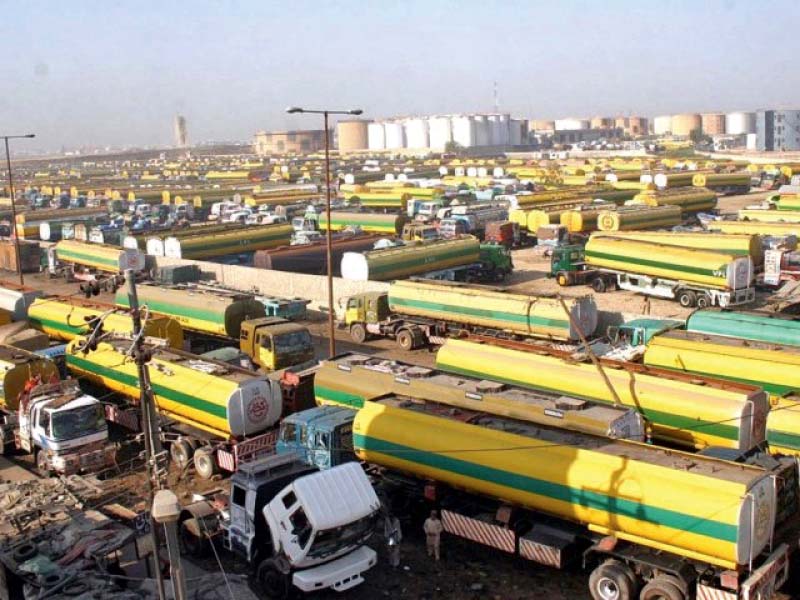
“Our talks with the government have failed and we have no option but to go on strike again,” All Pakistan Oil Tankers Owners Association Chairman Akram Durrani told The Express Tribune.
The transporters provided a 22-point demand list to the Oil and Gas Regulatory Authority (Ogra), but the regulator refused to budge from its stance.
“The government is not giving us time to take the safety measures sought by Ogra,” Oil Tankers Contractors Association (OTCA) Senior Vice Chairman Shams Shahwani said.
Last month, the oil transporters went on strike against strict implementation of Ogra regulations in the wake of Bahawalpur oil tanker tragedy. The strike ended when the transporters and government agreed on the constitution of a committee to reach common ground. However, the committee has failed to arrive at a consensus.
Ogra has been forcing the transporters to meet the safety and quality guidelines introduced in 2009. Efforts to enforce the regulations gathered pace after an oil tanker overturned in Ahmedpur Sharqia, Punjab in June 2017 and caused the death of over 200 people in the ensuing inferno.
The most contentious issue is the requirement that all oil tankers must have four axles, one more than the three axles present in most transport vehicles in the country.
Axles support a vehicle’s body weight and add to the stability, reducing the chances of overturning.
Earlier, at the end of their three-day strike in July, the transporters claimed that the government had accepted most of their demands, including the main condition of adding another axle to the tankers.
However, they now claim that the government is refusing to budge from its stance.
Moreover, they say the petroleum secretary had agreed to coordinate with the National Highway Authority (NHA), Inspector General of Motorway Police, Ogra and other authorities concerned to ensure oil transporters were not harassed and unnecessary laws were not implemented, a commitment which has not been fulfilled.
The transporters have also demanded exclusion of the National Logistics Cell (NLC) from the commercial oil transportation business to increase competitiveness in the market and reduce its monopoly. This demand has not been accepted by the government either, the transporters said.
Meanwhile, freight charges have not been revised upwards, much to the annoyance of the transporters.
They are pushing the government to give them another five years to add one more axle to all vehicles. However, the government says the transporters were told in 2009 to upgrade their vehicles, which they failed to do and should therefore immediately comply with the rules.
Ogra, after the strike was called off, made it clear that in case of any accident causing damage to the life/property of the general public during negotiations, the oil marketing companies (as per their licence condition) would be responsible for any obligation linked with any such mishap.
Published in The Express Tribune, August 20th, 2017.
Like Business on Facebook, follow @TribuneBiz on Twitter to stay informed and join in the conversation.







1732794933-0/Express-Tribune-(1)1732794933-0-270x192.webp)
1732084432-0/Untitled-design-(63)1732084432-0-270x192.webp)

1732789727-0/BeFunk_§_]__-(68)1732789727-0.jpg)






COMMENTS (2)
Comments are moderated and generally will be posted if they are on-topic and not abusive.
For more information, please see our Comments FAQ